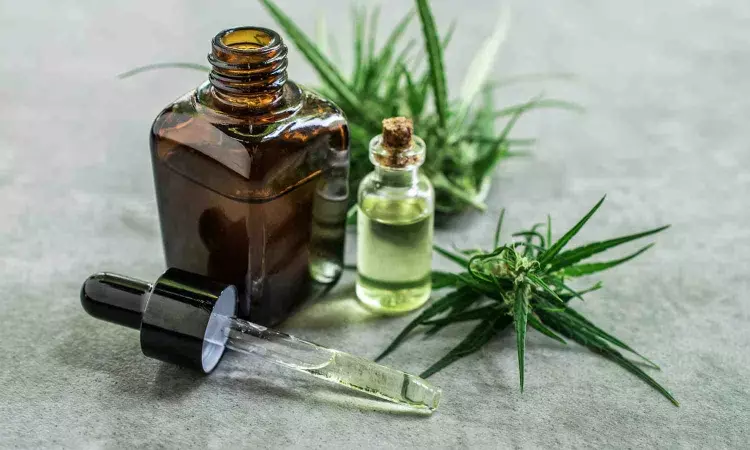- Home
- Medical news & Guidelines
- Anesthesiology
- Cardiology and CTVS
- Critical Care
- Dentistry
- Dermatology
- Diabetes and Endocrinology
- ENT
- Gastroenterology
- Medicine
- Nephrology
- Neurology
- Obstretics-Gynaecology
- Oncology
- Ophthalmology
- Orthopaedics
- Pediatrics-Neonatology
- Psychiatry
- Pulmonology
- Radiology
- Surgery
- Urology
- Laboratory Medicine
- Diet
- Nursing
- Paramedical
- Physiotherapy
- Health news
- Fact Check
- Bone Health Fact Check
- Brain Health Fact Check
- Cancer Related Fact Check
- Child Care Fact Check
- Dental and oral health fact check
- Diabetes and metabolic health fact check
- Diet and Nutrition Fact Check
- Eye and ENT Care Fact Check
- Fitness fact check
- Gut health fact check
- Heart health fact check
- Kidney health fact check
- Medical education fact check
- Men's health fact check
- Respiratory fact check
- Skin and hair care fact check
- Vaccine and Immunization fact check
- Women's health fact check
- AYUSH
- State News
- Andaman and Nicobar Islands
- Andhra Pradesh
- Arunachal Pradesh
- Assam
- Bihar
- Chandigarh
- Chattisgarh
- Dadra and Nagar Haveli
- Daman and Diu
- Delhi
- Goa
- Gujarat
- Haryana
- Himachal Pradesh
- Jammu & Kashmir
- Jharkhand
- Karnataka
- Kerala
- Ladakh
- Lakshadweep
- Madhya Pradesh
- Maharashtra
- Manipur
- Meghalaya
- Mizoram
- Nagaland
- Odisha
- Puducherry
- Punjab
- Rajasthan
- Sikkim
- Tamil Nadu
- Telangana
- Tripura
- Uttar Pradesh
- Uttrakhand
- West Bengal
- Medical Education
- Industry
Using cannabis can ease cravings for street-level drugs, UBC research suggests

New findings from researchers at the University of British Columbia suggest that cannabis could play a role in addressing the ongoing opioid overdose crisis.
A new publication from Dr. Hudson Reddon, alongside UBC Okanagan’s Dr. Zach Walsh and UBC Vancouver’s Dr. M-J Milloy, observed that using cannabis is associated with decreased use of crystal methamphetamine among people at highest risk of overdose in Vancouver’s Downtown Eastside.
About 45 per cent of the study’s participants reported using cannabis to manage their cravings for stimulant drugs in the last six months, including powder cocaine, crack cocaine and methamphetamines. A notable reduction in crystal meth use was observed among those who used cannabis for craving management. This association was not significant for crack cocaine users.
Dr. Reddon, the study’s lead researcher, emphasized the potential of cannabis as a harm-reduction strategy.
“Our findings are not conclusive but do add to the growing scientific evidence that cannabis might be a beneficial tool for some people who want to better control their unregulated stimulant use, particularly for people who use crystal meth,” says Dr. Reddon.
“This suggests a new direction for harm reduction strategies among people who use drugs.”
Dr. Walsh, a Clinical Psychology Professor at UBCO and a leading substance use researcher, highlighted the importance of further investigation. “While these findings are promising, they underscore the need for more comprehensive studies to understand the full potential of cannabis in the context of the overdose crisis,” Dr. Walsh says.
The research, published in Addictive Behaviors, used data from a questionnaire administered to individuals concurrently using cannabis and unregulated drugs, including stimulants and opioids, in Vancouver. It is the latest in a series of studies investigating the potential of cannabis to address the overdose crisis led by Drs. Milloy and Walsh and other colleagues at the British Columbia Centre on Substance Use.
Reference:
Hudson Reddon, Maria Eugenia Socias, Kora DeBeck, Kanna Hayashi, Zach Walsh, M.-J. Milloy, Cannabis use to manage stimulant cravings among people who use unregulated drugs, Addictive Behaviors, https://doi.org/10.1016/j.addbeh.2023.107867.
Dr Kamal Kant Kohli-MBBS, DTCD- a chest specialist with more than 30 years of practice and a flair for writing clinical articles, Dr Kamal Kant Kohli joined Medical Dialogues as a Chief Editor of Medical News. Besides writing articles, as an editor, he proofreads and verifies all the medical content published on Medical Dialogues including those coming from journals, studies,medical conferences,guidelines etc. Email: drkohli@medicaldialogues.in. Contact no. 011-43720751


